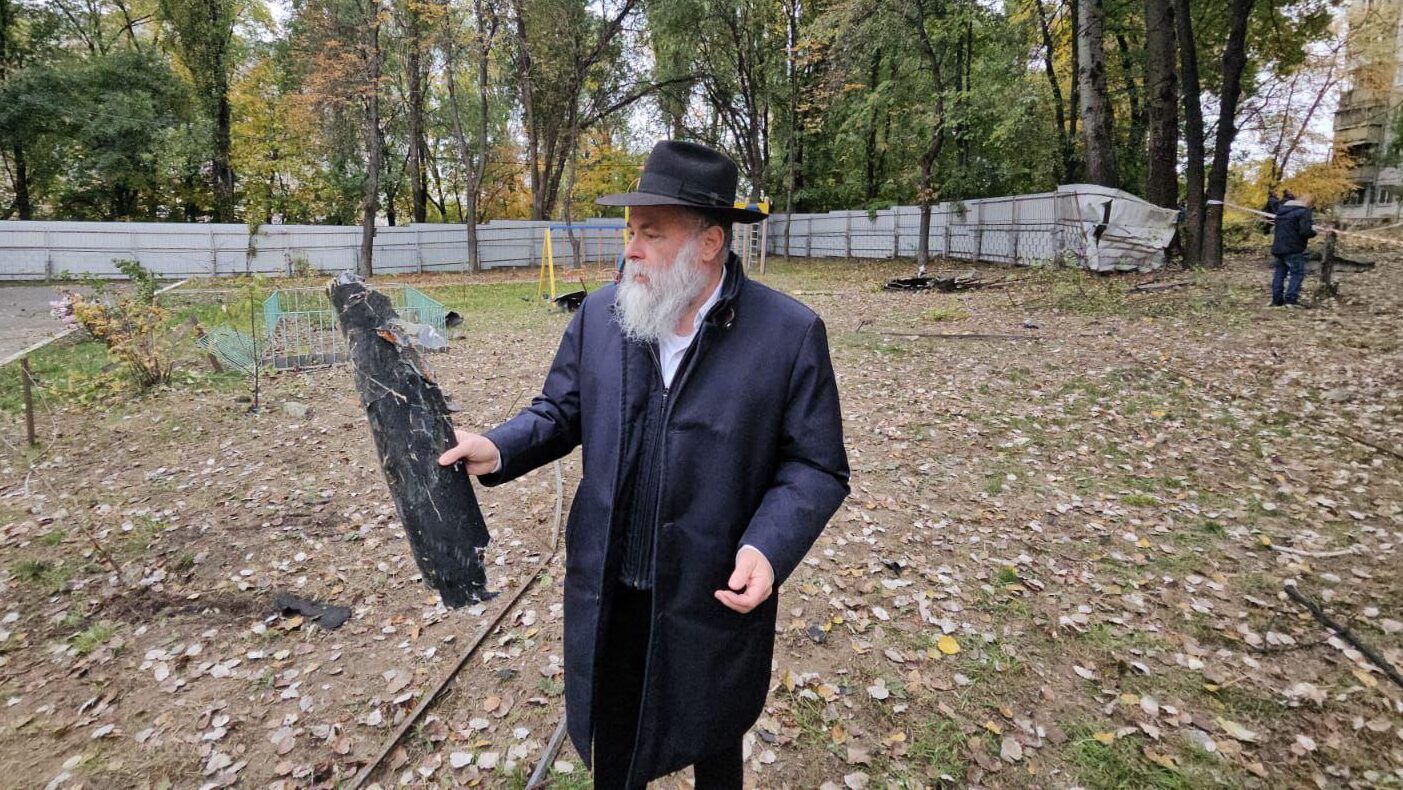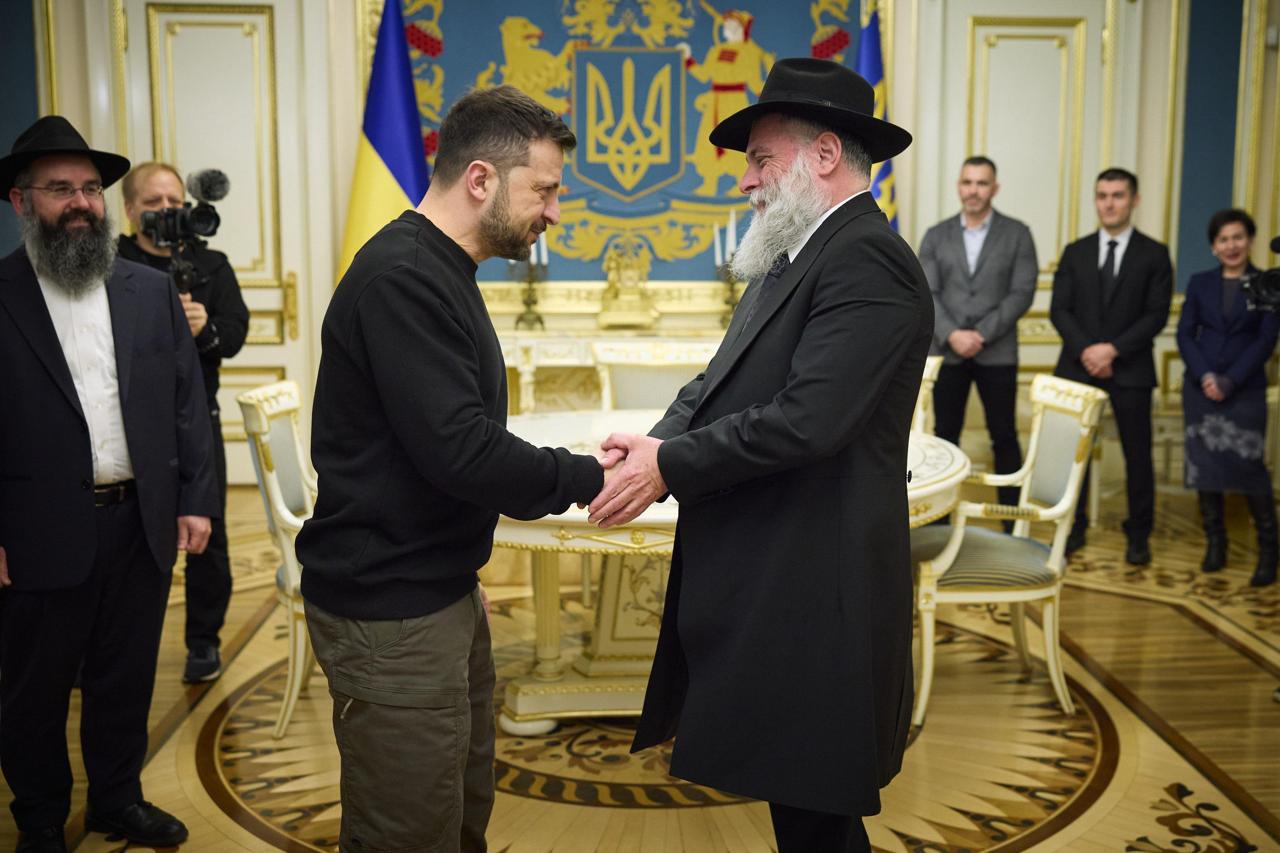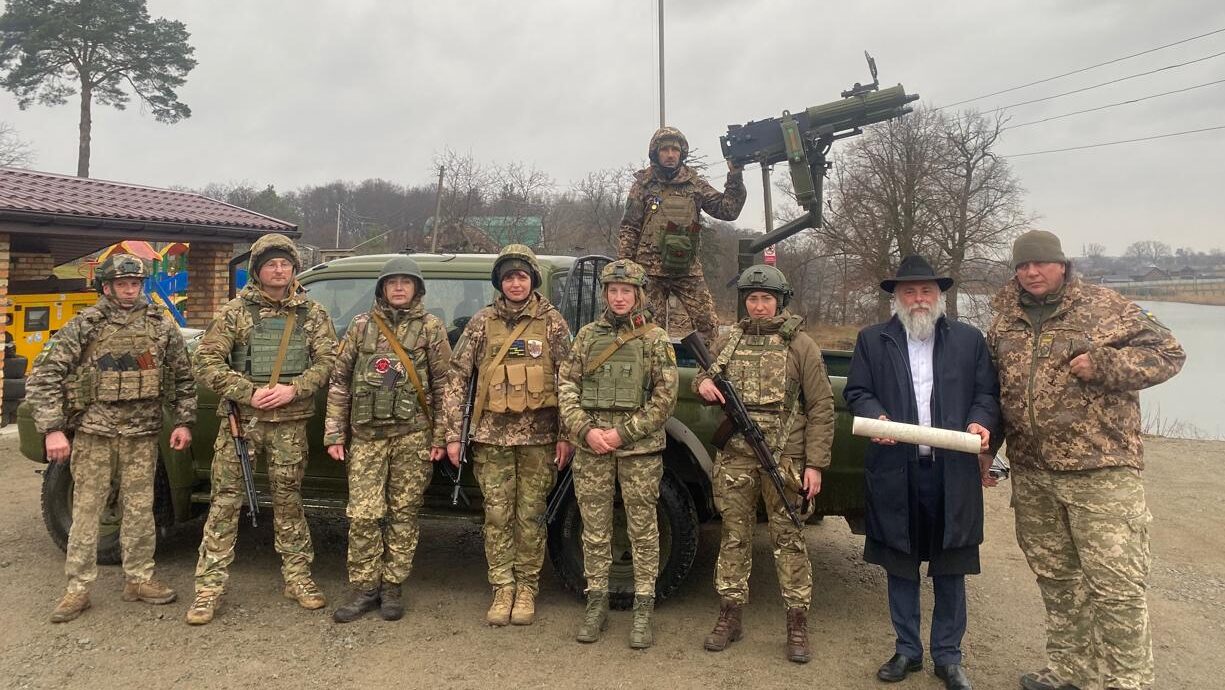In Kyiv, Rosh Hashanah Message Is Strength Through Unity
Community leaders juggle pared-down services, mass holiday meals, and support for displaced families as air-raid alerts and curfews shape observance in the capital
The Jewish community of Ukraine is entering the new year with one prayer above all: peace. With Rosh Hashanah approaching under air-raid alerts and curfews, community leaders are organizing pared-down services, mass holiday meals, and relief for families who have fled frontline cities to Kyiv.
Chief Rabbi Jonathan Markovitch of Kyiv said the community longs not just for victory but also for an end to the war with Russia.
If before we prayed for victory, today we are praying not only for victory but for an end to the war
“If before we prayed for victory, today we are praying not only for victory but for an end to the war,” Markovitch told The Media Line in a phone conversation ahead of the Rosh Hashanah holiday, which begins Monday, Sept. 22, at sundown. “It has become very depressing and difficult. People here are strong and believe in their country, but they really want the war to end.”
Ukraine has battled Russia since the invasion began on Feb. 24, 2022—about a year and a half before Hamas launched its attack on Israel. Since then, Jewish communities in both countries have faced hardships that, while different, often bear striking similarities.
One example came this summer, when students from Kyiv’s Perlina-Or Avner School—damaged by a Russian drone just months earlier—sent a letter of encouragement to classmates at Israel’s Gesharim School, in Bnei Brak, which had been hit by an Iranian missile.

Rabbi Jonathan Markovitch holds a fragment of a Russian drone that damaged the Perlina-Or Avner School in Kyiv, Ukraine, Oct. 30, 2024. (Courtesy Kyiv Jewish Community)
“As people who went through the same experience, it was important for us to show support and solidarity with our brothers and sisters,” Markovitch said.
In their letter, the students wrote that they understood precisely what the Israeli children were experiencing: “Our school was also hit a few months ago by an attack from evil enemies. We also experienced fear, confusion, and tears.”
In both cases, the attacks struck just hours before students were scheduled to arrive. Although damage at the schools was extensive, no one was injured. Markovitch said that life in Kyiv is “very difficult”—even more so than in many other parts of Ukraine. As the capital, Kyiv draws people fleeing the fighting who are seeking work and shelter, including Jewish families hoping for community support.
“We are trying to be available to help them and give them value, including on Rosh Hashanah,” he said.
This holiday season, give to:
Truth and understanding
The Media Line's intrepid correspondents are in Israel, Gaza, Lebanon, Syria and Pakistan providing first-person reporting.
They all said they cover it.
We see it.
We report with just one agenda: the truth.


Despite the challenges of war, Markovitch stressed that the Chabad community will not compromise its traditions.
This year, Chabad is organizing holiday meals for about 1,000 people across four locations, in line with wartime gathering restrictions. Multiple shofar soundings will take place. In addition, tens of thousands of Israelis who make the annual pilgrimage to Uman to visit the grave of Rabbi Nachman of Breslov will pass through Kyiv along the way.
Markovitch moved to Kyiv with his family in 2000 and began building the Jewish community and its institutions. Today, it includes a Chabad House, a kindergarten, the Perlyna Jewish day school, and a private kindergarten for children with disabilities that serves Jewish and non-Jewish families. The community also runs a kashrut system and a broad range of humanitarian programs, particularly for the elderly.
When much of Ukraine was left without electricity and heat, Markovitch helped evacuate hundreds of older adults from Kyiv to temporary shelters run by the Jewish community in Poland. With the outbreak of the Israel–Hamas war, he assisted Ukrainian citizens caught in combat zones. Markovitch also initiated the Garden of Hope in Kyiv to raise awareness of both Israeli hostages in Gaza and Ukrainian prisoners of war.
We have clinics for the elderly where they can come and sing and play instruments and enjoy much-needed companionship
“We have clinics for the elderly where they can come and sing and play instruments and enjoy much-needed companionship,” Markovitch said.
He also noted that, while there are activities for young adults, many are unable to participate in synagogue life. Those trying to avoid conscription fear they could be stopped and recruited into the army on their way to services.
Some of the stories Markovitch has witnessed are profoundly moving. One involves a Jewish soldier who had only begun reconnecting to his faith when he was drafted. Seriously wounded in battle, he lost a hand. Upon returning to the community, he broke down in tears before the rabbi, asking how such a tragedy could happen just as his belief in God was growing stronger.
The young man, however, continued his studies. About a month later, he realized he had been looking at his situation incorrectly, and he began praising and thanking God for sparing his life—saying that while he had “just” lost a hand, so many others had been killed on the battlefield.

Rabbi Jonathan Markovitch visits Ukrainian President Volodymyr Zelenskyy in Kyiv, Ukraine. (Courtesy Kyiv Jewish Community)
In another case, an older couple lost everything when a missile struck their home. They turned to the rabbi for help, but he admitted his hands were tied: he wasn’t the municipality or the government, and he had no extra home to offer. Hours later, a congregant arrived and mentioned that he had just moved his parents out of Ukraine—their Kyiv apartment was empty. Could the rabbi think of someone who might need it?
It was as if divinely inspired
“It was as if divinely inspired,” Markovitch recalled. “Suddenly, there was a place for them. God has his own plans.”
Markovitch said this Rosh Hashanah carries a powerful message for Ukraine, Jews, and Israelis: unity.
“Rosh Hashanah is the birth of the first man and time for everyone to celebrate, Jews and non-Jews,” he said.
“In Ukraine, we see unity,” he continued. “The nation is united against the people who are against them. They are trying to help each other. Through this unity, they can have much bigger and better successes.”
Markovitch hopes to cultivate that same unity within the Jewish community, including Israel.
“Not everyone is equal—not in their thoughts and deeds,” the rabbi concluded. “But as soon as we understand our strength is in unity, no one will beat us.”

